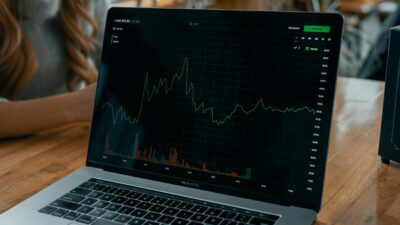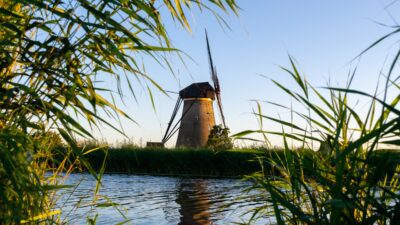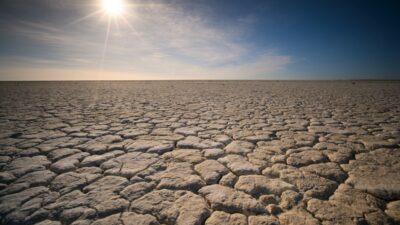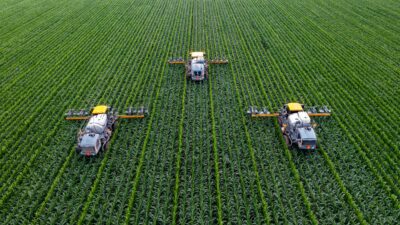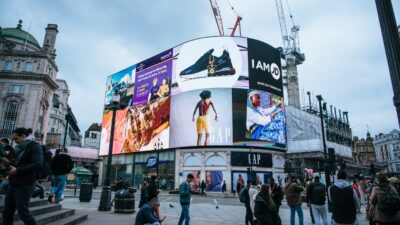Kai Riemer and Christopher Wright
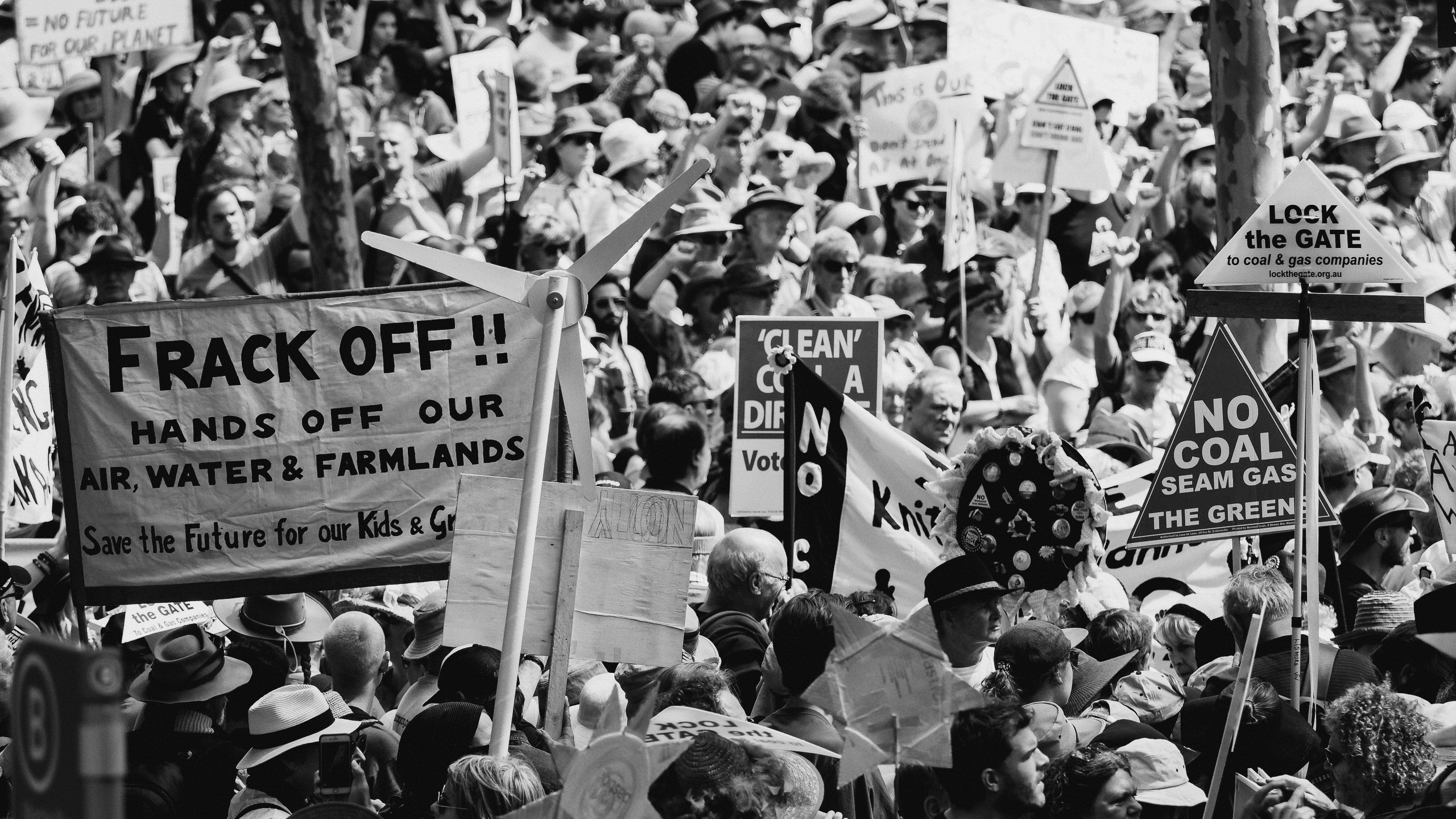
COP27 and moving forward with climate change responses
This week: we talk to Christopher Wright about COP27 and how to move forward with responses to climate change.
Sandra Peter (Sydney Business Insights) and Kai Riemer (Digital Futures Research Group) meet once a week to put their own spin on news that is impacting the future of business in The Future, This Week.
Our guest this week
Christopher’s blog: Climate, People & Organizations
The stories this week
01:30 – A technologically advanced society is choosing to destroy itself
Other stories we bring up
Our previous discussions with Christopher including the numbers of climate change and COP26, climate action and the apocalypse, and the influence of the coal industry in Australia
Christopher’s 2021 explainer article on the numbers of climate change
Challenging disciplinary norms: a response, Christopher’s recent article with Daniel Nyberg
Climate-proofing management research, Christopher’s recent article with Daniel Nyberg
Follow the show on Apple Podcasts, Spotify, Overcast, Google Podcasts, Pocket Casts or wherever you get your podcasts. You can follow Sydney Business Insights on Flipboard, LinkedIn, Twitter and WeChat to keep updated with our latest insights.
Send us your news ideas to sbi@sydney.edu.au.
Music by Cinephonix.
Image: courtesy of Christopher Wright, all rights reserved
Kai Riemer is Professor of Information Technology and Organisation, and Director of Sydney Executive Plus at the University of Sydney Business School. Kai's research interest is in Disruptive Technologies, Enterprise Social Media, Virtual Work, Collaborative Technologies and the Philosophy of Technology.
Christopher Wright is Professor of Organisational Studies and leader of the Balanced Enterprise Research Network at the University of Sydney Business School. His research focuses on the diffusion of management knowledge, consultancy and organisational change.
Share
We believe in open and honest access to knowledge. We use a Creative Commons Attribution NoDerivatives licence for our articles and podcasts, so you can republish them for free, online or in print.
Transcript
Disclaimer We'd like to advise that the following program may contain real news, occasional philosophy and ideas that may offend some listeners.
Kai Sandra is away this week. And, you know, since I don't want to talk to myself, I got help from Chris Wright, Chris, welcome to the podcast.
Chris Wright Oh, thanks, Kai. Great to be here.
Kai And Chris is here as the ideal guest to talk about this week's topic, which is all about COP27, which is currently happening in Egypt and is of course the annual climate conference. Chris, if you want to briefly introduce yourself, makes my job easier.
Chris Wright Yeah, sure. My name is Chris Wright. I'm a Professor of Organisation Studies at The University of Sydney Business School. And for the last 12 to 15 years I've been researching and teaching about climate change, specifically the political economy and business involvement in climate crisis.
Kai And today, we're going to talk a little bit about COP27, but also wants to talk a little bit about the future and how we might imagine a different future. So, ready to do this?
Chris Wright Yeah, sure, keen to get into all these issues. We've got a new book out on it, so it'd be fun to talk about that too.
Kai Okay, let's do this.
Intro From The University of Sydney Business School, this is Sydney Business Insights, an initiative that explores the future of business. And you're listening to The Future, This Week, where Sandra Peter and Kai Riemer sit down every week to rethink trends in technology and business.
Kai Okay, so very opportunistically, today's article that we're going to discuss is actually written by you and your colleagues, Daniel Nyberg and Vanessa Bowden in The Conversation, "A technologically advanced society is choosing to destroy itself. It's both fascinating and horrifying to watch". That's a good provocative title. Chris, we have you on the podcast on an annual basis. And in order for us to not just rerun last year's podcast, we're going to talk a little bit about your new book that you and your co-authors have out, which also provides the basis of the argument you make in this piece. But you start off, the Climate Change Conference, COP27 happening in Egypt. So what's the big issues that we're discussing this year?
Chris Wright Okay, so COP27 is in Sharm El Sheikh in Egypt, last year COP26 was in Glasgow. And there was a lot of hope last year around serious commitments to reduce emissions to avoid global warming above 1.5 degrees Celsius above pre-industrial levels. The basic issue is that the world has left this need for serious emissions reductions so late now that the ability to avoid greater than 1.5 degrees C is rapidly diminishing. And in fact, many climate scientists actually argue that it's very unlikely now that the world will avoid that threshold. So we come to Egypt for the COP talks. And it's really about how can we put more flesh on the bones of these commitments to avoid worsening global warming. And some of the key issues here that have emerged now are around how the developed nations might assist developing nations, those nations that are particularly exposed to climate impacts, financially help them with the loss and damage that is now resulting from extreme weather events. And of course, just in the last several months, we had that rather graphic example of the floods in Pakistan, 33 million people displaced, 1000s killed, we'll probably never know the full mortality of that event. So the extreme weather events of climate change. Climate change is here. Now we're seeing it in real time. And the talks are a yearly attempt to try and ratchet up ambition around emissions reduction globally.
Kai And I think we don't have to dwell on the fact that this is happening. We can see it all around us and no better place than Australia where we go from long droughts, catastrophic bushfires to sometimes equally catastrophic, widespread flooding. So let's talk a little bit about how we are actually preparing for the future that is to come. On the one hand, you know, trying to organise reduction in emissions and things like that, but also dealing with the fallout. The title of your book is "Organising Responses to Climate Change. The Politics of Mitigation, Adaptation and Suffering". And as you said, COP27 has a big topic, the issue of loss and damage. So what do we mean by mitigation, adaptation? I mean, suffering almost speaks for itself, but maybe the difference between mitigation and adaptation, if you could talk about that a little bit.
Chris Wright It was deliberate decision on the part of Daniel and Vanessa and myself in writing the book that we would structure it around these three key parts. And the mitigation piece is very well known, I mean, that's where the bulk of international climate negotiations have been focused. And it's pretty simple. It's basically focused on how can we reduce carbon emissions. If you look at the history of industrialisation in the world over the last two centuries, you can see carbon emissions, greenhouse gas emissions, CO2 and methane ratcheting up over the years. And so mitigation is really about attempts to reduce those emissions, and that can occur through decarbonisation, primarily. So shifting energy production away from coal and gas fired electricity generation, changing transport, away from combusting oil towards possibly hydrogen and renewables, electric vehicles. So energy production, transport, shifts in agriculture, lot of methane produced in agriculture and food production. And then lastly, the fourth big bucket of emissions is really around industrial processes of manufacturing. And again, that comes back to decarbonisation, and possibly the use of hydrogen as an energy source. So the mitigation piece is the bulk of where a lot of the climate conversation happens. However, as we were saying earlier, climate change is here now, we're seeing those extreme weather events, the Black Summer bushfires in Australia, the floods. So how do we adapt to the climate impacts we're already currently seeing? And that's a huge piece, because that basically requires us to make some pretty tough decisions about where people live. And how do we deal with record breaking heat waves, where possibly large parts of the world will be uninhabitable? Or how do we deal with the climate migration that will flow from that? How do we deal with the geopolitical pressures? So climate adaptation, when you think about it, goes everywhere. And we have to reinvent not only how we do energy and production, but reinvent the way in which we live, and decisions mostly by local governments about planning for the future.
Kai The way we design cities, for example, right? I mean, on the one hand, cities have often been pointed out as a solution towards climate change, because higher density living can be organised more effectively, in terms of you know, logistics and food production energy and can be more efficient. But on the other hand, in Australia, cities are sprawling, we're not actually building upwards, we're building sideways, and we're having these vast suburbs out where, you know, we transform bushland into single dwelling living. How do we deal with this adaptation piece in a place like Sydney, for example, where, you know, we have on the one hand, lots of waterfront property that might be threatened by rising sea levels, and we have this urban sprawl, we've got a lot of reliance on cars, what would be your vision for what a place like Sydney will have to do?
Chris Wright Yeah, so the whole issue around urban development and cities is a huge problem. And there isn't really a coherent conversation happening at the moment, it's basically being left to local governments and councils to deal with the impacts, often post hoc, of flood events or a heatwave or a bushfire. This really requires top of government sort of attention. It requires federal, state, and local intervention around planning and not basically throwing your hands up and letting property developers make decisions about new potential short-term profitable sort of areas for development. So it requires a whole of government sort of approach that considers the risks, and then works back from the risks. And that's going to be very tough because there's going to be decisions about, we can't let people live on floodplains in the west of Sydney, for instance, we can't simply raise the height of the Warragamba Dam, and then open up the floodplain to more housing development, because that's just setting us up for failure in the future. So there's a lot of short-termism that goes on currently. And so to deal with adaptation seriously, it requires long-term planning, government decision making that is separate from the interests of vested interests, like property developers and corporations, who basically thinking short term horizons, and it's going to require a lot of community engagement, which we don't currently have in our politics. So it really needs both top down and bottom-up intervention, sort of deliberative democracy decision making about the future. And that's not a conversation we're really having. We spent some time in the book in the adaptation chapters, looking at the work of the 100 Resilient Cities project that's being developed globally. But the problem there is that again, governments and corporate interests tend to have a sort of a blind to the magnitude of the threat. And if you look at, for instance, sea level rise projections, there's a mass of large global cities that are right up on the coast, Sydney, London, Shanghai, New York, Calcutta, etc. You can go down the list, and the projections of sea level rise this century are pretty scary. And that's possibly going to have to be looking at decisions around retreat, which is, of course, politically unpalatable.
Kai So what I hear you say is that what we would really need is a more holistic approach to this, probably changes to zoning laws and planning, regulation, and things like that, and maybe this will be driven by insurance companies or financial incentives to build in different places. None of that is easily achievable in the short-term, as you said, short-termism points, you know, to other solutions. So how is adaptation actually happening? What are we doing in this space?
Chris Wright Well, basically, we're not doing a whole lot. There's a lot of talk about adaptation, one of the IPCC annual reports, or five-year assessment reports comes out, is focused on adaptation. And the key point they make is that it's being done very badly. It's being done in a very short-term fashion, often after events have happened. Not in anticipation of climate impacts. And it also opens it up to opportunities for new business in different industries. So there's sections in our book where we talk about, for instance, what's happening in the Arctic, as the Arctic ice melts, basically it's opening up opportunities for business expansion and minerals extraction, now that they can get past the melted ice, new business opportunities for fishing fleets as they chase the fish stocks further north, as the oceans warm. So it's a sort of an extractivism mindset. And rather, ironically, as the companies that have melted the ice are actually pushing further into the melted water to extract more fossil fuels in some cases. In the case of Russia, for instance, there's a quite well-documented, quote, some years ago now, where a senior Russian politician was making the point that 'climate change isn't a problem for us, that's going to open up business opportunities for us, agriculture, and frozen Siberia, these sorts of things'. So there is this rather apocalyptic sort of vision of adaptation of the wrong kind, actually doubling down on fossil fuel extraction and other forms of destruction of the natural environment as the planet warms. And that is entirely likely as a form of negative adaptation in the future.
Kai That's all quite depressing, of course, but your book makes really good points for how to move forward, right. So you're not just dwelling in on assessment of the situation of the problems. You do that, and we have to, but also, in trying to chart certain ways forward, one of the things that you point to is what you call the three Ds, the decarbonisation of the economy, thinking about de-growth as a new mindset, and a renewed sense of democracy. So maybe we talk about that, and how you see those work together, right, because they don't work in isolation.
Chris Wright So this is always the very tough part of a book to write on climate change. And I get this in my teaching as well, you know, because students and the general public say, 'well, we sort of get how urgent the problem is, what's the solution?'
Kai What are we doing about it?
Chris Wright Yeah, yeah, and the answer is, there's no silver bullet solution to this. Technologically, there are responses we can make to radically reduce emissions and change our economy. And that's the decarbonisation part, in terms of a sort of industrial scale shift towards renewable energy. And that requires basically strong government leadership. The de-growth part is a difficult one to conceive, because it's so counterintuitive to the dominance of logic of compound economic growth. How could you question that? You must be crazy, that's sort of assumed. But there is this growing literature and research around the idea of de-growth. And it's, it's not sort of a blanket de-growth of economies, necessarily, it's targeted de-growth of particular sectors of the economy, which have largely defined where we are over the last few centuries, so fossil fuel energy, for instance. But also regrowth of new sectors of the economy that we need for a more sustainable life. And then underpinning that, of course, our current politics has largely been corrupted by corporate interests, and large state enterprises. And we need to sort of reimagine what democracy might mean, in terms of the participation of citizens and all of the decisions that affect their lives, where we get our energy, how we get our food, transport, urban development, all these sort of things, there's great potential for a much more sort of deliberative form of democracy at that grassroots level.
Kai So is it fair to say that you see the renewed sense of a more, you know, participatory democracy, which is almost like an oxymoron, right? Because democracy...
Chris Wright Should be participatory.
Kai Right? But we largely have democratic systems where participation of citizens is relegated to you know, making a tick every three to four years. So a more democratic process and the de-growth conversation are the steppingstones towards a foundation on which then decarbonisation would happen. So I want to concentrate on those two, because I think decarbonisation, everyone understands this. But we need to think this in a much more, not necessarily radical, but comprehensive way. And so this idea of de-growth is very hard to argue for because growth is such a fundamental thing in our economy and even in daily life, right. Children growing up, that's a good thing. Growth seems to be mostly a universally good thing when we talk about the economy, you know, if it hasn't grown, then the news is negative. So to transition to a world in which economic growth might be seen as something negative, where you know, everything needs to be balanced, where zero is actually a good thing, is quite a mental leap. So how do you do that? Not just intellectually, but also, collectively, practically?
Chris Wright Yeah, you're quite right. I mean, it's almost counterintuitive, given the power of the dominant ideology of economic growth. And we've, we've had political campaigns in Australia, where the mantra is 'jobs and growth'.
Kai Of course, yeah.
Chris Wright And it's seen as progress. It's seen as things getting better, it gives us sort of a sense of identity and where we're going, and it's quite persuasive.
Kai The nightmare thing is recession.
Chris Wright Yeah.
Kai Which is the bad thing, which is just basically the absence of growth.
Chris Wright Yeah. So we have this global economic system, which is predicated upon compound economic growth, often defined through GDP growth, each year, ad infinitum, will continue forever. The problem, as we're seeing, is we've hit up against the planetary boundaries. And that old quote from Kenneth Boulding, in the 70s, you know, 'the only people who believe infinite growth on a finite planet, are madmen and economists', I mean, that's sort of where we're at now, because the earth planetary boundaries are biting back.
Kai Which is, of course, unfair, because it's so ingrained in everyday thinking that, you know, everyone kind of believes...
Chris Wright Everyone's a madman or an economist, possibly, yeah. So yeah, it's a huge challenge to confront that. But I think there is a way to frame this in a much more appealing fashion. And that is around this sort of idea of painting a picture of what the future of society might look like, which is green, participatory, with greater equality. And that's really a sort of a process of painting that picture and to some extent, in the US I'm thinking of the example of Alexandria Ocasio-Cortez and a Green New Deal sort of vision. And they were creating this sort of animated vision, I think it was of, of what that would look like, high-speed renewable rail, renewable transport, communities with greater participation, greater quality, those sorts of things. So it is possible to paint that picture. The problem, I think, in terms of how that can be achieved, what standing in the way is the prevailing politics is captured by vested interests that don't want to see that happen. And so it's a bit of an unequal battle. If you look at the PR and marketing spend of the fossil fuel sector. And I was at a presentation last week at University of Newcastle, where this was put forward, and it studied the American data on Industry Association and corporate PR spending, and its orders of magnitude like, I think it was around 20 times the spend that the renewable energy sector has. So that's shaping public opinion, it's always going to be tough.
Kai I just read that at COP26, the lobbyists from the fossil fuel industry with the largest contingent, larger than any of the countries involved, which, again, points to that picture. And so we're not only up against having to collectively wrap our heads around what a non-growth, a de-growth economy would look like, we also have a vested interest that paint narratives that detract from that, that actively argue against that picture. And they have all kinds of scare narratives, of course, of you know, loss of quality of life and, you know, increase in poverty, when in fact, imaginaries should argue the opposite, a decrease in inequality, which, of course, might come at the expense of those vested interests that paint those pictures in the first place.
Chris Wright We've seen those scare campaigns in Australia in the US, former Prime Minister Tony Abbott, when he was railing against the carbon price was talking about, Whyalla would be wiped out, the $100, Sunday roast. All of these sorts of scare areas in the US. Of course Trump, and we've just seen this in the midterm elections in the US, the Trump politicians really denying climate change sort of as a hoax, but also raising the argument that what climate progressives are suggesting is a threat to your identity, they're going to take your cars, they're gonna take your guns, all this sort of stuff. So it's all about casting the positive environmental messages as a threat to identity and a threat to your interests.
Kai And you call this hegemony right, that this is not only the prevailing way of thinking, but also the dominant order that is often cast as, you know, a law-like state of affairs that, you know, has to persist, because without this capitalist growth, market order, things just wouldn't work at all.
Chris Wright Yeah, and a big part of the book, I guess, is describing how that hegemony is created and maintained, because it doesn't just fall out of the sky. It's a product of conscious action. And ideally, I mean, this goes back to the work of Antonio Gramsci in the 20s, when he was really writing about this idea of cultural hegemony. How was it that the ruling class were able to maintain their power? How was it that workers and others didn't rise up in revolution? He argued, well, essentially, the ruling class is able to create this ideology that leads to the consent of those in subservient positions in society. And they do that by building alliances with associated institutions, the church, the media, and of course, in the current parlance, the role of corporations in the fossil fuel sector have been key in that, building connections with industry association think tanks, conservative politicians. And so that process of continual creation and maintenance in the face of rising critique. And the critique is very evident around climate with groups like Extinction Rebellion, and Fridays for Future, and Just Stop Oil, this rising grassroots awareness that something has to be done about climate change, and the pushback has been very severe.
Kai And so Gramsci, as you mentioned, who describes this idea of hegemony, he describes three different ways forward for, you know, how a society that finds itself in a crisis of hegemony where, you know, there's cracks appearing, might then decide to go forward. And you describe these in the last chapter of your book. And I want to talk a little bit about those because they chart possible futures for us, of which one of them is the desirable path forward, so we're going to talk about that last, but the first two are two that we already see at work, right? Ones he calls trasformismo, which is kind of a term of art, I guess. And the other one is Caesarism. So maybe talk about those two first.
Chris Wright Yeah, well the first category that Gramsci identified in this broader sort of phase of what he called an interregnum, where there's the cracks in the hegemony starting to show as you pointed out. Trasformismo is basically this sort of idea of attempts at some limited compromise, incremental sort of change. And that's sort of what we're seeing in the COP talks, and a lot of the sort of national conversations about climate change. Now, not so much a denial of climate change, but an acceptance of this happening. Yes, it's happening, but we can deal with it through existing mechanisms through market mechanisms through pricing carbon, we can deal with it in even oil companies like BP and Shell committing to net zero emissions by 2050, which is a very heroic sort of claim. And it's really smoke and mirrors.
Kai Carbon offsets.
Chris Wright Carbon offsets. Yeah, carbon capture and storage, future technologies we don't have that will magically take the carbon out of the air and sequester it, these sorts of things. So it's an argument, we don't have to throw the economic and political system out, we can work within the system and incrementally change things. And that's really a very dominant narrative in mainstream climate politics.
Kai But isn't it true that we have made some progress? You know, if I look around the streets of Sydney, there's more Tesla cars out there. I've just been to Europe, there's many more electric car models out there, and people are buying EVs in record numbers. So there's a transition happening there, there's more and more solar on rooftops. We just had a day where we had almost 70% of all electricity in Australia being produced by solar, arguably, you know, midday on a sunny day, but isn't there some progress to be seen?
Chris Wright Yeah, look, there is change happening, there is this sort of renewable reinvention, there's no doubt about that, you know, the uptake of electric vehicles in transport, the uptake of solar and wind and renewable energy and battery storage. And the investment levels are really ramping up. When you talk to people in the investment community, and they make this point, they say change is happening. And that's true. When you step back, though, and look at the sort of the aggregate energy consumption of the world, and where it comes from. It hasn't changed a whole lot since the 1970s, which is hugely depressing. There's IEA, International Energy Agency data, which suggests that the world is still consuming around 80% of its energy consumption comes from coal, oil, and gas. And that hasn't changed from 1973.
Kai So does that mean that most of that growth in renewable energy has been eaten up by a general growth in energy consumption?
Chris Wright Yeah, it's basically the renewable energy is supplementing the energy needs and renewable energy has increased dramatically. I think it was from about 0.1% in 1973, to around two point something percent recently. So that is a big change. But in the scheme of things, the world is still hopelessly addicted to fossil energy.
Kai So what we're saying is this idea of trasformismo, making the transition part of the business as usual, is too slow. It doesn't help us.
Chris Wright Yeah, the change is happening, and it looks dramatic, and it is dramatic in terms of particular parts of the world and these sorts of things. But it's not dramatic enough to avoid where we need to be in terms of climate change.
Kai Okay, this is where the argument comes in. We need a more radical shift in worldview in mindset towards a degrowth and more democratic society, which is where the second option comes in, which is Caesarism, which is the forceful move against that narrative, right?
Chris Wright Yeah, Caesarism, Caesarism I'm not quite sure of the pronunciation. It comes from the idea of the strong leader, hence, Caesar in the title. And what Gramsci was talking about is it's very easy in these periods of crisis for populations to fall back on the appeals of the strong leader, and we saw this as Gramsci was talking about it in Italy, with the rise of Mussolini and of course in Germany with the rise of Adolf Hitler. More recently, we've seen it in this sudden flip towards the strongman leadership of say Donald Trump in the US, Jair Bolsonaro in Brazil.
Kai Who very much inhabit this narrative of back to the good old days, preserving of the past as the extension into the future, reindustrialization, and very much entangled with the interests of the fossil fuel industry.
Chris Wright It's a very seductive appeal and ideology. I mean, that's, of course, what Hitler and Mussolini were doing too in the 20s and 30s, this, let's go back to this imagined past, which was heroic and patriotic, and all of that sort of stuff. And you see it in Russia with Putin, and other parts of the world. And that is an easy sell, because it's basically saying, we don't need to change anything. In fact, if we change things, you're going to lose your identity, you're gonna lose what you think is important, and it's going to affect you. And what it also does is it creates a boundary, it creates an other, that is easy to hate. And we've seen this, you know, in Europe and the US around the threat of migrants, the threat of others coming to the country. Or internal others, environmentalists, those arguing for the same sex equality, or whatever it is.
Kai It's the worst of three futures, right? It's against mitigation, and it's also against adaptation. It wants to keep climate migrants out. It's their problem, right? And what do I care if their island is drowning? So between those two, the slow change in business as usual, and the vicious attack of any change, neither of those you identify as a viable way forward. So the third option is called ‘cision’, which means a more radical cut with the past, a new path forward. Which isn't easy, right?
Chris Wright No, it's not. I mean, if we look at the three options, there's certainly evidence today that that second option seems to be playing out. And that's facilitated by technological change, the role of social media and the ability of vested interests to really game politics in a quite cynical way. I've just been listening to Sarah Kendzior's book, "They Knew", about the changes in American politics after the pandemic and that and yeah, it is quite frightening how easily powerful interests can shape politics to their own desires. So yeah, that third option is very difficult because it encapsulates the sort of things we're talking about with the three Ds, which is imagining a completely different political economy. It's about reinventing 200 years of industrialised capitalism. So it's a huge task. And we don't make any sort of arguments that this is necessarily easy, or possibly likely. The last part of our book, we sort of talked about this idea of hope with reality, or hope without optimism, sort of framing it that we are very much in a crisis, there isn't an easy solution, or an easily palatable sort of way out of this in some ways.
Kai No, because the hegemony owns the easy future, which is the extension of the past. So you say in your book, what is really needed as disrupting the present in order to create the future. Neither of the two are easy tasks, because people, by and large, do not like disruption, despite the prevalent Silicon Valley narrative about, you know, disruption is a good thing. But more importantly, the more difficult task is to articulate a positive future, a future in which people can see themselves. When I look at the narratives out there, it's sort of almost a competition of two negative narratives. One group argues that if we change our ways, things will be terrible. And that's the sort of the Trumpism, the Caesarism. And the other is if we don't change our ways, the future will be terrible, we will all drown and burn and, and so it's basically the competition between two negative narratives. So how do we articulate a positive narrative? And what would that look like? What would the positive future in which people can see themselves wanting to live look like, and whose job is it to articulate that?
Chris Wright Yeah, and that's a huge task where much more work is needed about creating that desirable future imaginary. I mentioned the sort of the Green New Deal sort of rhetoric in the US, earlier.
Kai It's not good Hollywood right because I mean, much of what we have in imaginaries is like Hollywood, but the movies that we get are catastrophes.
Chris Wright Yeah, dystopian.
Kai Dystopian, right?
Chris Wright And creating that more utopian imaginary is very difficult when it does appear in popular culture is very much the preserve of the rich, I'm thinking of Hollywood movies like Elysium, with the rich have basically left the planet and live in a satellite. And the rest of us are sort of in this squalid hell back on Earth, and that bifurcation of rich and poor plays out in a lot of the future imaginaries of climate.
Kai So is it because a positive future is boring?
Chris Wright It's not dramatic.
Kai It's not dramatic enough, it doesn't draw crowds into the cinema. So how then do you deal with that? And what's the arena in which this happens, other than a COP27?
Chris Wright Yeah, there's some interesting popular cultural references. I read Kim Stanley Robinson's book, Ministry for the Future, which came out a year or two ago, and he does quite a good job of trying to paint that picture of what the future might look like. And it's not all rosy. I mean, basically climate impacts accelerate and get worse. And there's a particularly graphic opening chapter where a heatwave hits India and 20 million people die. And it leads to huge geopolitical changes. But he does also imagine future technologies where emissions are dramatically reduced, the aviation industry shifts to airships. There's all sorts of imaginings of a more sustainable future, which is not perfect, but it's better than what will happen if we continue on the current path. I think this is an area where I touch on this a little bit in the chapter in the book, where we talk about popular culture imaginings of the future, and the role of film and literature and poetry and these sorts of things, art, to not only highlight the horror, but also highlight a possible more desirable future. It's certainly a role for our politicians, and they are sadly lacking here. I think they're poll-driven and scared about engaging with climate generally, in either admitting how bad things are getting, but also using that as a leverage point to an alternative. So yeah, we do need that storytelling of the desirable future.
Kai So those are the storytelling have to become more holistic, you all do this in your book by saying democracy inclusion degrowth as a path to more equality in society, as well. They're all part of the same narrative. So does it have to be a narrative that isn't just about the climate, that doesn't isolate the environment as this thing apart from us, as you know, the problem to be fixed? Is it more about thinking all these positive social changes as the basis for creating something that is also better for the environment?
Chris Wright Yeah, I think you've really hit the nail on the head there, because the key dynamic in the climate crisis is this separation of humanity from the natural environment, we see them as separate. And this is something that indigenous thinking, I think, really nails, that we are critically embedded within the natural environment. To talk about social sustainability, to talk about humanity, you have to recognise that we are fundamentally dependent on a habitable climate. And without that, we die fairly quickly. So this sort of, painting the vision of humanity embedded within environment, I think is key. And I'm not quite sure how we do that. But it's something that we really need to do, is to break down that separation. Because at the moment, we're still in that sort of enlightenment thinking that we can just bend nature to our will, we can cut down forests, we can make the world habitable for us, we can have the Anthropocene we want with technology. And that's completely the wrong idea. We need to recognise that the planetary boundaries define what we can do.
Kai But it seems to me then that there is a convergence almost in different activist issues. Like when we talk about a voice for indigenous people in the Australian Parliament, then that could also be a voice for a more sustainable living, that could have a huge impact maybe on rethinking imaginaries for how we adapt to climate change, given that indigenous people have really powerful stories about living in country rather than the separation from the environment. So maybe there's a positive way forward where a lot of these things like, you know, Occupy Wall Street, movements for less inequality, Extinction Rebellion, and, and also movements towards recognition of indigenous people. They maybe want all the same thing if we think about it as a holistic problem.
Chris Wright Yeah, look, I'm a bit biased, but I see climate change is an issue which does bring together all of these issues around equality and race and gender and all this stuff. Because it really determines our future as a species. And it links all of these things critically together. The danger is that we continue down that first or that second path, things get worse, which they inevitably will, in terms of extreme weather events and threats to communities. And we don't take that third path, which is the more difficult but the more necessary path. And we fall for the seductive appeals and discourses of the strong leaders. So yeah, I think we can bring together a lot of really important issues that are critical. And the other actor here I think we've talked about the Friday's for Future, the school climate strikes, the young people, because climate change is absolutely galvanising issue for future generations. You know, it's the young kids you'll see out there in the protests, because they realise it's their future, happening right now. And we're locking off possible alternatives.
Kai And this, Chris, I think, is where your book makes an important contribution, because it opens up a space forward. It's not just dwelling on the analysis of the problem and the issues, which you do and which is important, but it gives a positive narrative for, you know, what this might look like. And I think that's where, you know, some of the hope lies. You talk about hope without optimism, but I do think there are glimpses of where things can be going. There are some good signs in, you know, how some of the established actors in economies, the way they're resorting to more forceful measures is a result of them losing the power of their narrative. People in the majority acknowledged climate change, they want change, we can see this in the recent elections, where the people voting in candidates who are pro-response to climate change. So there are glimpses of optimism, and I think a lot lies with the narrative. Chris, thank you very much. Thanks for your book. Thanks for your conversation, and thanks for a different conversation about climate response.
Chris Wright Thanks very much Kai. It was great to be able to talk to you about this.
Kai And that is all we have time for. Thanks for listening.
Outro You've been listening to The Future, This Week from The University of Sydney Business School. Sandra Peter is the Director of Sydney Business Insights. And Kai Riemer is Professor of Information Technology and Organisation. Connect with us on LinkedIn, Twitter, and WeChat. And follow, like, or leave us a rating wherever you get your podcasts. If you have any weird or wonderful topics for us to discuss, send them to sbi@sydney.edu.au.
Close transcript









